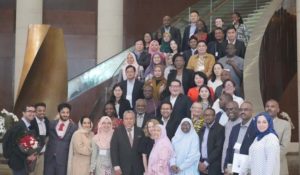Four Takeaways from the Primary Health Care Financing and Payment Conference
Since 2011, the Joint Learning Network for Universal Health Coverage (JLN) Provider Payment Mechanisms (PPM) technical initiative has been a convening force, bringing together practitioners from across the network to discuss shared challenges and develop practical guidance to support stronger financing and payment systems for UHC.

This work has catalyzed improvement at both the global and country levels. Practical toolkits—such as the Practical Manual on Costing of Health Services for Provider Payment, Guide for Assessing Health Provider Payment Systems, and Using Data Analytics to Monitor Health Provider Payment Systems, among other knowledge products—have distilled lessons from across the JLN community, supported countries to address some of the most pressing challenges in PHC financing and payment, and served as a platform for dialogue and collaborative learning at the global level.
Over the past two years, practitioners from twelve JLN member countries have participated in the PHC Financing and Payment collaborative of the PPM Initiative, sharing practical guidance and evidence to better leverage provider payment mechanisms for PHC in support of universal health coverage (UHC). Practitioners participated in various virtual and in-person learning engagements that resulted in the synthesis of country lessons, testing of new learning modalities, and development of new knowledge products that build the body of global knowledge.
The collaborative concluded with a final PHC Financing and Payment Conference held in Kuala Lumpur, Malaysia between April 16–18, 2019. The aim of the conference was to provide an opportunity for JLN member countries to reflect on progress made on PPM reform over the eight years of the Initiative, and share lessons from experience implementing PHC financing and payment in support of UHC. Countries also reflected on the role the JLN has played to support knowledge-sharing and country progress, and future opportunities for continued shared learning. Country participants shared their experience and lessons through various modalities including panel sessions, poster presentations, plenary discussions, and small group breakout sessions. Participants also deliberated on how to sustain PPM progress as country teams discussed next steps for defining benefit packages and costing for resource allocation.
Countries shared the following strategies and insights to achieve progress in implementing PPM improvements and refinements:
- Commit to effective stakeholder engagement: Getting the right stakeholders together in a well‐defined process supported by timely, appropriate and digestible evidence; targeted communication messages were a best practice for successful implementation. Effective stakeholder engagement supports design of appropriate policies that are technically valid and both politically and operationally feasible.
- Generate, package, and apply relevant evidence: Knowledge translation that brings in both global and locally generated evidence, together with contextualized lessons from the experience of other countries was important for evidence‐based decision making.
- Develop capacity among individuals and institutions: Countries are moving beyond one‐off trainings and short‐ term external expertise to on‐site “learning‐by‐doing” using locally generated tools and data, with access to mentorship by coaches and mentors with experience in similar contexts.
- Accumulate shared knowledge: Participants reiterated the importance of joint learning and sharing knowledge of what works and why, within and between countries. The role of the JLN in packaging and facilitating sharing of tacit knowledge was emphasized as an important source of knowledge that supports country implementation.
The conference concluded with a discussion on future topics and learning modalities for the next phase of the Initiative. The conference report is available for download and summarizes the conference proceedings and deliberations.
